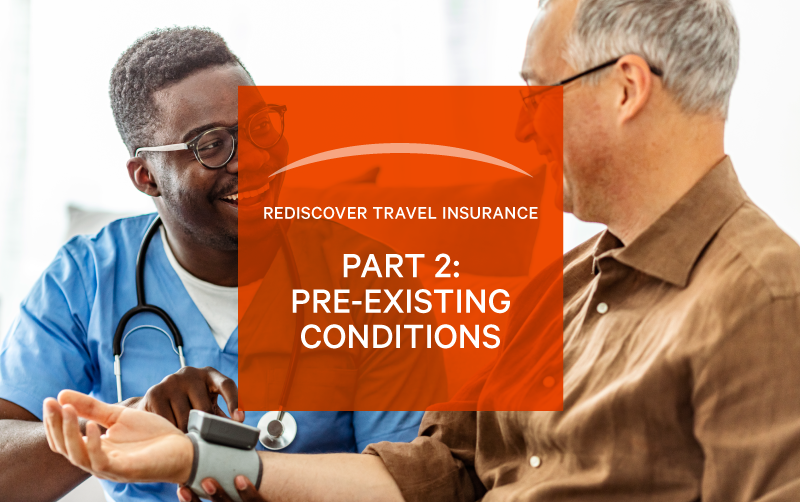As travel insurance has evolved over the years, more and more people in less-than-perfect health have become eligible for coverage. That’s a good thing. But you still need to be mindful that travel insurance is supplemental to your government (provincial) health plan, not a substitute for it, and there are exclusions and limitations in all travel health plans you need to be aware of when selecting insurance.
The most basic plans are those offered within credit card benefits, but they are generally short term (10, 15, or 30 days), usually designed for persons younger than 65, and generally do not cover medical emergencies caused by pre-existing conditions—although there are exceptions in higher-end credit cards for which you pay a premium. But even then, coverage for pre-existing medical conditions is very limited.
Fortunately, having a pre-existing condition does not mean you can’t get excellent coverage in a dedicated travel insurance plan. But do your diligence well, and don’t wait until the last minute to buy your insurance. Treat it as a serious purchase.
Don’t skip over the limitations
Generally, if your pre-existing condition (say, high blood pressure, high cholesterol, gastric reflux, or other chronic condition) has been “stable” for a specified time (e.g., 30, 60, 180 days)—which means it hasn’t revealed new symptoms, hasn’t required a change in medication dosage or type, lab tests or procedures, and hasn’t been treated by a physician or referred to a specialist—it may be considered stable and you’ll be covered. But read and understand how “stable” is defined in the policy. It’s how the policy defines “stable,” not how you may define it, that counts in the end.
If you have a pre-existing condition that might not meet this stability standard and you still feel confident enough to travel, you might ask about a pre-existing condition “waiver” that allows you to be covered for all other medical emergencies unrelated to your pre-existing condition. That’s a good option, but make sure your policy specifies that you have such a waiver. Get it in writing.
Medical underwriting—a growing trend
As snowbirds and elderly travellers have become such a substantial force in the travel market, medically underwritten plans have grown exponentially. Their value lies in the insurer’s ability to fashion a plan of benefits for your specific health profile based the answers you provide to a detailed questionnaire or medical declaration. These generally require only “Yes” or “No” answers, but because some medical terminologies are used, make sure you look up the definitions provided. Don’t guess. And if you still are unsure about how to answer any questions, it’s always a good policy to ask your doctor for help. Accuracy is important. Once you complete your application, your responses will be graded for risk level and your premium set accordingly.
Also understand that failure to disclose any medical conditions, treatments, or diagnoses on your questionnaire can void your total application and lead to denial of your claim if you later have one.
For example, if while travelling you have a medical emergency—let’s say a gallbladder removal—and you subsequently file a claim and it’s discovered that you failed to confirm having been treated for atrial fibrillation at some earlier time, your gallbladder claim may be denied—even though your AF had nothing to do with your gall bladder emergency.
How can that be? It’s not a nasty trick. The premium and conditions of coverage in your medically underwritten plan are based solely on the information you provide. If the underwriters had known you’d had AF treatments in the past, you would have been given a different plan option, at a different premium level, with perhaps other conditions. In effect, you didn’t qualify for what you got. Your family physician’s advice may have helped.
Medically underwritten policies have opened up the world of travel to many people who otherwise would have been totally sidelined and forced to stay home. And as the world of travel opens up again, look to the new opportunities that exist. You may be pleasantly surprised.
© Copyright 2021 Milan Korcok. All rights reserved.
To find out more about how MSH Americas can help you, please don’t hesitate to contact us.
HelpLine@americas.msh-intl.com
+1 416 730 8488 (or toll-free at +1 800 360 3234)

